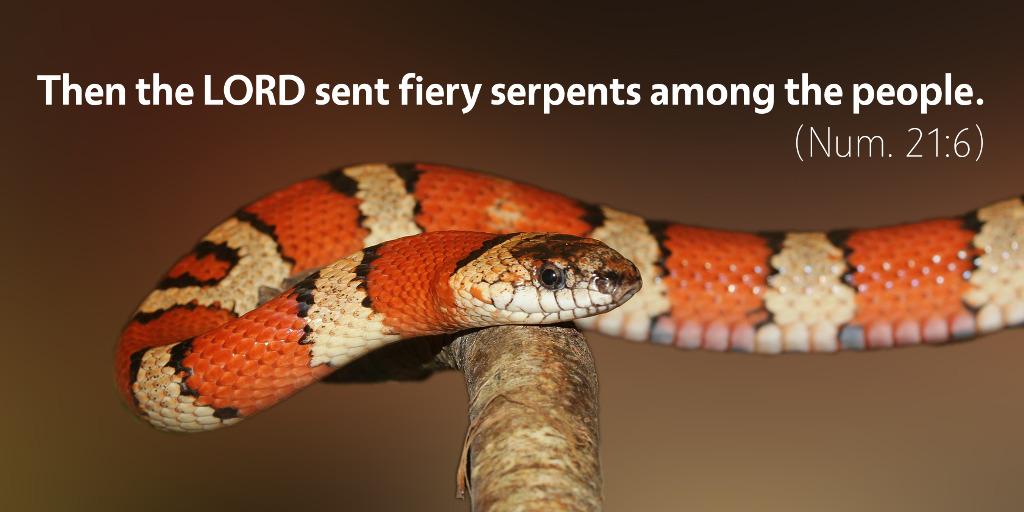Bible Readings for May 12th
Numbers 21 | Psalms 60–61 | Isaiah 10 | James 4
As though they had already forgotten that they had just provoked Moses to disqualify himself from entering into the Promised Land in Numbers 20, the people of Israel fall right back into their old habits, saying to Moses, “Why have you brought us up out of Egypt to die in the wilderness? For there is no food and no water, and we loathe this worthless food” (Num. 21:5).
Where Yahweh had largely been patient with their complaints over their provisions in the wilderness, he now sends fiery serpents that bite the people. God had provided for their life up to this point, and now he sends an instrument of death into their midst. To their credit, the people cry out to Moses, acknowledging their sin and asking for Moses to intercede with Yahweh for them to remove the serpents from their midst (Num. 21:7).
Yahweh’s response is gracious in two ways. First, he instructs Moses to fashion an image of a serpent out of bronze and to lift that image up in the sight of all the people, explaining that “everyone who is bitten, when he sees it, shall live” (Num. 21:8). Through looking upon this bronze serpent, the people of Israel were healed from the poison of the serpent.
Second, Yahweh continues to provide for his people, and we read that as the people traveled on, they came to a well called Beer, where Yahweh told Moses, “Gather the people together, so that I may give them water” (Num. 21:16). The Israelites, rather than looking upon Yahweh’s gift to them with contempt, respond with gratitude by singing a song to commemorate the occasion (Num. 21:17–18).
The New Testament encourages us to read stories like this to recognize that Yahweh was indeed gracious to his people but that his grace was of a temporary nature. Even though Yahweh provided for his people water in the wilderness, and even though he healed them when they looked upon the bronze serpent, the Israelites still fell dead in the wilderness, so that none of them entered into the promised land except for Joshua and Caleb.
Yahweh’s intentions were never purely temporary, however. In Numbers 21, Yahweh’s ultimate intention was to set the stage for the coming of a greater redeemer and healer than Moses. Jesus, in his conversation with Nicodemus, explains this: “And as Moses lifted up the serpent in the wilderness, so must the Son of Man be lifted up, that whoever believes in him may have eternal life” (John 3:14–15).
And as we today look upon the Son of Man, who was lifted up on the cross for us, Yahweh heals us from the curse that we inherited through the poison of the serpent’s lies in the Garden of Eden, and through Christ’s righteousness, God qualifies us to enter into his Promised Land with him forever.
Podcast: Play in new window | Download (4.9MB) | Embed
Subscribe: Apple Podcasts | RSS | More

Scripture quotations are from The Holy Bible, English Standard Version copyright © 2001 by Crossway Bibles, a division of Good News Publishers. Used by permission. All rights reserved.


